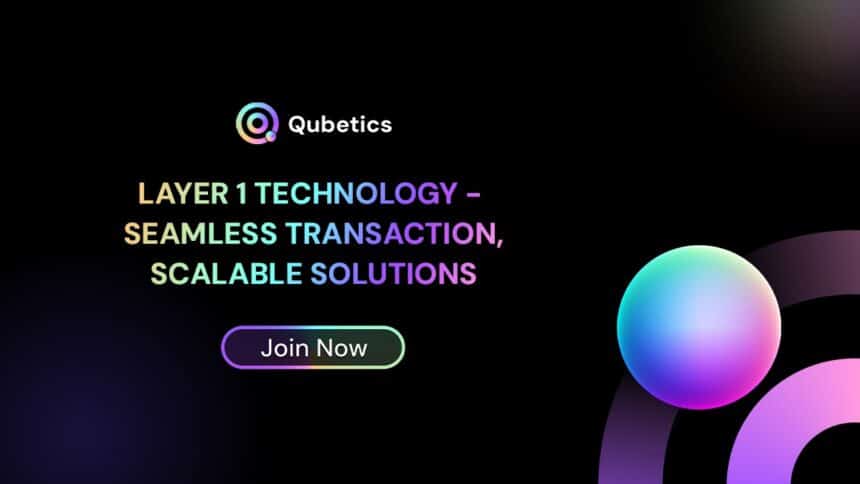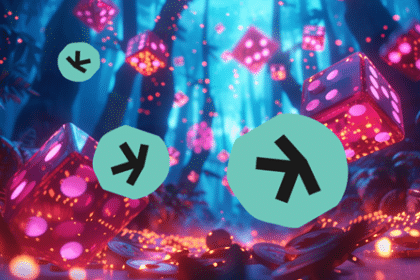The blockchain industry is continually evolving, with new projects emerging to address challenges such as scalability, interoperability, and user experience. Among these projects, Qubetics, Polkadot, and EcoChain stand out for their unique approaches to fostering a more interconnected and efficient blockchain ecosystem. Qubetics focuses on enhancing the user experience through its advanced wallet solutions, while Polkadot aims to create a seamless network of interoperable blockchains. EcoChain, with its commitment to sustainability, introduces a blockchain solution designed to balance eco-friendliness with technological innovation. This article explores how each of these projects contributes to the future of blockchain technology.

Qubetics: Empowering Users with a Comprehensive Wallet Solution
The Qubetics Wallet is a core part of the Qubetics Network, designed to meet the increasing demand for secure, user-friendly crypto wallet solutions. With the global crypto wallet market valued at $8.42 billion in 2022 and expected to grow to $61.87 billion by 2030, there is a clear need for advanced tools that simplify the management of digital assets. The Qubetics Wallet addresses this need by offering a versatile solution available across iOS, Android, and desktop platforms, making it accessible to many users.
What sets the Qubetics Wallet apart is its seamless integration with major financial networks, such as Visa and Mastercard. This integration allows users to link their Qubetics Wallet to debit cards, facilitating everyday transactions through popular mobile payment systems like Apple Pay and Google Pay. Additionally, the wallet offers virtual card functionality, providing users with an added layer of security and convenience for online purchases. This feature allows users to generate virtual cards directly within the app, giving them greater control over their spending without exposing their primary accounts.
These innovations in the Qubetics Wallet aim to empower users with a more comprehensive digital finance management tool. By providing a seamless interface and supporting physical and virtual transactions, Qubetics makes it easier for users to manage their $TICS tokens and other assets, contributing to a more accessible and efficient crypto ecosystem. Currently, in its presale phase, Qubetics offers a promising investment opportunity, with the next phase bringing a 10% price increase, making this the ideal time for early adopters to get involved.
Polkadot: Building a Web of Interoperable Blockchains
Polkadot, developed by the Web3 Foundation, is a multi-chain platform that enables different blockchains to communicate and share information seamlessly. Its architecture is built around a Relay Chain, which is the main hub that coordinates a network of specialised blockchains called para chains. This structure allows Polkadot to achieve interoperability, enabling cross-chain transfers of assets and data, which is crucial for the future of decentralised applications (DApps).
One of Polkadot’s key advantages is its shared security model, where para chains benefit from the security of the Relay Chain. This allows developers to build custom blockchains without having to establish their own security protocols, making Polkadot a powerful platform for projects that need custom blockchain solutions while still being able to interact with other networks. Through its Substrate framework, developers can create blockchains tailored to specific use cases, enhancing flexibility and innovation within the ecosystem.

EcoChain: A Sustainable Approach to Blockchain Technology
EcoChain is a blockchain platform designed to focus on sustainability and energy efficiency. Unlike many traditional blockchain networks, which consume vast amounts of energy through proof-of-work (PoW) mechanisms, EcoChain leverages a more eco-friendly approach, aligning with the increasing demand for green technologies. EcoChain’s mission is to provide a scalable blockchain solution that minimises its environmental impact without compromising on security or performance.
The EcoChain platform supports a wide range of decentralised applications (DApps) and smart contracts, offering a developer-friendly environment for building eco-conscious blockchain solutions. With a commitment to reducing carbon footprints, EcoChain is well-suited for businesses and projects prioritising environmental responsibility. By combining technological innovation with sustainability, EcoChain aims to attract developers and enterprises looking to integrate blockchain into their operations without the associated environmental concerns.
Conclusion
Qubetics, Polkadot, and EcoChain each offer unique contributions to the blockchain space. They focus on enhancing user experience, fostering interoperability, and promoting sustainability. Qubetics’ advanced wallet solutions and dVPN service prioritise user control and security, while Polkadot’s multi-chain architecture enables seamless data exchange across networks. EcoChain, with its focus on environmentally friendly blockchain solutions, ensures that the industry can grow without compromising sustainability.
Together, these platforms illustrate the potential for blockchain technology to adapt and evolve, meeting the diverse needs of modern digital economies. As more users, developers, and enterprises adopt blockchain, the innovations provided by Qubetics, Polkadot, and EcoChain will play a crucial role in shaping a decentralised, interconnected, and sustainable future.

For More Information:
Qubetics: https://qubetics.com
Telegram: https://t.me/qubetics
Twitter: https://x.com/qubetics
Stay on The Bit Journal to be informed instantly.





























